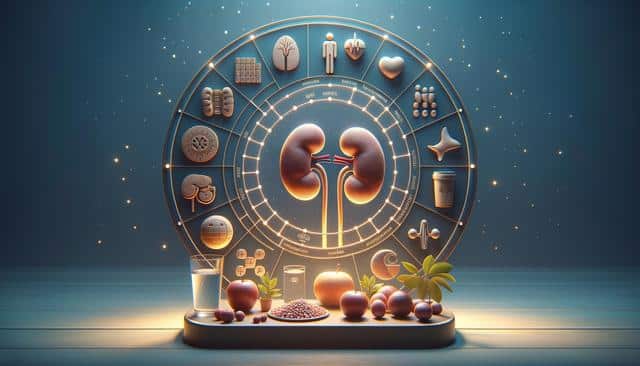Understanding Kidney Disease Symptoms
Kidney disease often progresses silently, making it crucial to recognize symptoms early. These symptoms may include fatigue, difficulty sleeping, decreased appetite, swollen feet and ankles, persistent itching, and changes in urination patterns. Each symptom can have a significant impact on daily life, which emphasizes the importance of early detection and management. Identifying these symptoms early can lead to a more effective treatment plan, potentially slowing the progression of the disease. It’s important to consult a healthcare professional if you notice any of these symptoms, as they can provide a proper diagnosis and guidance for treatment.
Exploring Risk Factors for Kidney Disease
Certain risk factors can increase the likelihood of developing kidney disease. These include high blood pressure, diabetes, a family history of kidney disease, age over 60, and chronic use of certain medications. Understanding these risk factors is essential for prevention and early intervention. Lifestyle choices also play a role; for instance, smoking and obesity can exacerbate the risk. By maintaining a healthy lifestyle and managing existing health conditions, individuals can reduce their risk of developing kidney disease. Regular medical checkups are recommended for those with risk factors to monitor kidney function and catch any early signs of disease.
Effective Treatment Options for Kidney Disease
Treatment for kidney disease depends on the stage and cause of the condition. Options include medication to control blood pressure, manage diabetes, and reduce cholesterol levels. In more advanced cases, dialysis or kidney transplantation may be necessary. It’s essential to work closely with healthcare providers to tailor a treatment plan that meets individual needs. Additionally, lifestyle changes play a critical role in managing kidney disease. This includes maintaining a healthy weight, exercising regularly, and avoiding substances that can further damage the kidneys. Support from dietitians and healthcare professionals can help in creating a comprehensive treatment plan.
The Role of Diet in Managing Kidney Disease
Diet plays a pivotal role in managing kidney disease. Certain foods can help protect the kidneys, while others should be avoided to prevent further damage. Foods beneficial for kidney health include berries, apples, cabbage, and cauliflower, which are low in potassium and phosphorus. Conversely, it’s advisable to limit intake of high-sodium foods, processed meats, and high-potassium foods like bananas and oranges. Staying hydrated is also important, but fluid intake may need to be monitored in advanced kidney disease stages. Consulting with a healthcare provider or a dietitian can guide dietary adjustments that support kidney health.
Support and Resources for Individuals with Kidney Disease
Living with kidney disease can be challenging, but numerous resources and support systems are available to help. Support groups and counseling services provide emotional support and practical advice for managing the condition. Educational resources are also available to inform patients and their families about the disease, treatment options, and lifestyle adjustments. Additionally, organizations dedicated to kidney health research and advocacy offer valuable information and assistance. Staying informed and seeking support can empower individuals to manage their condition effectively and improve their quality of life.
Conclusion
Recognizing and addressing kidney disease symptoms early is crucial for effective management. Understanding the risk factors, symptoms, and treatment options can help individuals take proactive steps towards maintaining kidney health. Diet and lifestyle play significant roles in managing the disease and can greatly impact progression and quality of life. With the right support and resources, individuals with kidney disease can navigate the challenges of their condition and seek effective treatments to improve overall well-being.
